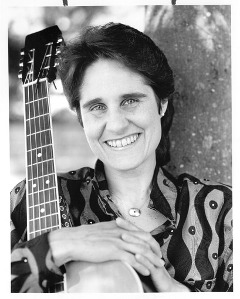
Debbie Friedman (Feb. 23, 1951-Jan. 9, 2011) was born in Utica, New York, to Gabriel and Freda Friedman. The family moved to St. Paul, Minnesota, when she was 5. She was a song leader at the overnight camp Olin Sang Ruby Union Institute in Oconomowoc, Wisconsin. In 1972, she moved to Chicago, where she served as an artist in residence at Temple Sinai. Over nearly four decades she recorded 22 albums, enriching the Jewish liturgy with such compositions as “The Aleph Bet Song,” “Miriam’s Song,” “Not By Might,” “I Am a Latke,” and “Mi Shebeirech,” co-written with her partner Drorah Setel. “Mi Shebereich,” a song for healing, is used by hundreds of congregations throughout North America. Her songs were gender sensitive and inclusive.
In 2007, Friedman was named to the faculty of Hebrew Union College–Jewish Institute of Religion’s School of Sacred Music in New York City where both rabbinic and cantorial students attended her classes. Subsequently, the school was renamed the Debbie Friedman School of Sacred Music. Three years after her death from a neurological ailment, an anthology of her songs was published. “Sing Unto God: The Debbie Friedman Anthology” which featured instrumentation and lyrics for every song she wrote and recorded.
In an introduction to the anthology, her family wrote: “Debbie’s music is the narrative of her personal journey. It is the story that should not be lost. Her music was raw. Her intimate relationship with liturgy, Tanach, and modern and ancient texts is revealed in her interpretations and melodies. She found a home for the texts and her lyrics in the music she created. Every nuance of her music and lyrics gave voice to her love for Judaism, her love for others, her joy and pain — they gave voice to the person that Debbie was and wanted to be.”
Tomorrow, February 24: Ted Arison
*
SDJW condensation of a Wikipedia article